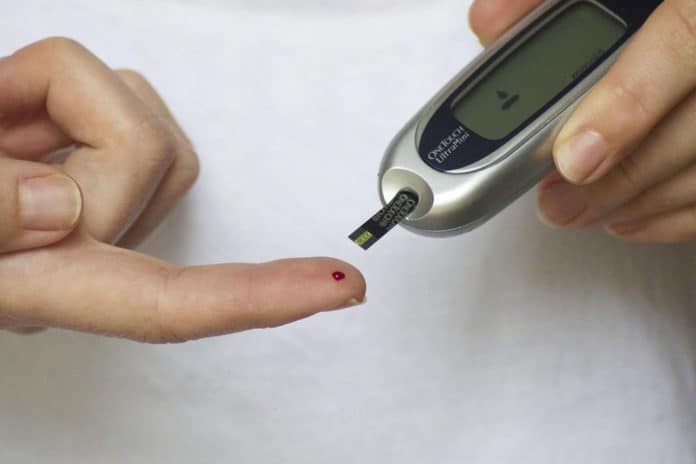A new study evaluated the association between blood sugar levels and subsequent risk of composite vascular events, especially in acute ischemic stroke and diabetes patients. For people with diabetes who have a stroke, it was found that there may be an ideal target blood sugar range to lower the risk of different types of vascular diseases like a stroke or heart attack later on.
Study author Moon-Ku Han, MD, Ph.D., of Seoul National University College of Medicine in Korea, said, “We know that having diabetes may be associated with an increased risk of having a first stroke. But our results indicate that there is an optimal blood sugar level that may start to minimize the risk of having another stroke, a heart attack, or other vascular problems, and it’s right in the 6.8% to 7.0% range.”
Patients with diabetes have an increased risk of having a first stroke. But this study indicates an optimal blood sugar level that may start to minimize the risk of having another stroke, a heart attack, or other vascular problems, and it’s right in the 6.8% to 7.0% range.
The study involved 18567 patients with diabetes with an average age of 70. All participants were admitted to the hospital for an ischemic stroke caused by a blood clot.
In a multivariable analysis using a test called the hemoglobin A1C, scientists determined people’s average blood sugar level over the past two to three months. A hemoglobin A1c (HbA1c) test measures the amount of blood sugar (glucose) attached to hemoglobin.
The patients were followed up one year later to determine if there was an association between A1C levels with the risk of having another stroke, a heart attack, or dying from these or other vascular causes.
Of all participants, 1,437, or about 8%, had a heart attack or died from the vascular disease within a year of starting the study, and 954, or 5%, had another stroke.
The study found that people admitted to the hospital with A1C levels above the 6.8% to 7.0% range had an increased risk of having a vascular event like a heart attack and having another stroke.
After adjusting for factors like age and sex, scientists found that people’s risk for a heart attack or similar vascular diseases was 27% greater when admitted to the hospital with A1C levels above 7.0%, compared to those admitted with A1C levels below 6.5%. People’s risk for having another stroke was 28% greater when admitted to the hospital, with A1C levels above 7.0%, compared to those below 6.5%.
Han said, “Our findings highlight the importance of keeping a close eye on your blood sugar if you have diabetes and have had a stroke.”
Journal Reference:
- Jun Young Chang, Wook-Joo Kim. Association of Prestroke Glycemic Control With Vascular Events During 1-Year Follow-up. Neurology, 2021 DOI: 10.1212/WNL.0000000000012729
